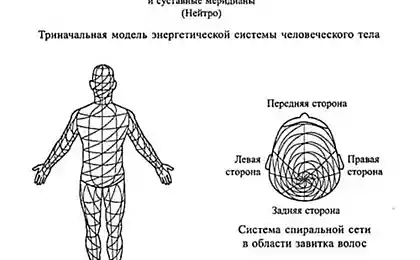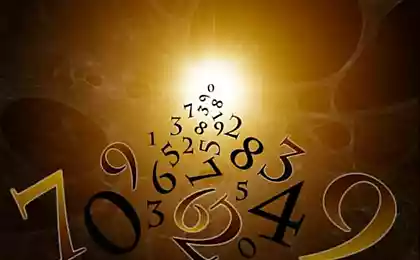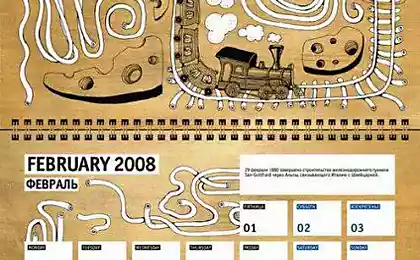522
In fact, a leap year does not fall on every four years
Focuses kalendarya
In most cases the number of years that can be evenly divided into four, has one extra day for all four years. Year, which falls on the day - February 29 - is considered a leap year. However, years divisible evenly by 100, do not contain an extra day if the number of years, while no residue can not be divided by 400.
This means that for the 400-year period of extra days will be only 97, not 100. That does not sound too clear? Well, the calendar that we use contains a small mistake.
It is estimated that in the year exactly 365 days. In fact, the Earth makes a complete revolution around the sun in about 365 days and six hours. Thus, four years appears in the calendar 24 unaccounted hours. In order to somehow take them into account, and was coined by a leap year, where there is an extra day - 29 February. But those six hours - too inaccurate amount of unaccounted time: more accurate to say that "not enough" 5 hours, 49 minutes and 16 seconds.
To compensate for this, in the calendar at the end of the century an extra day is added, unless the year is not evenly divisible by 400.
For example, the year 1900 was not a leap year. But the year 2000 was a leap year, because 2000 can be evenly divided by 400. Thus, the year 2100 is not a leap year, too, if will live long enough, you can tell your grandchildren that blog Faktrum once explained to you the reason for this.
via factroom.ru

In most cases the number of years that can be evenly divided into four, has one extra day for all four years. Year, which falls on the day - February 29 - is considered a leap year. However, years divisible evenly by 100, do not contain an extra day if the number of years, while no residue can not be divided by 400.
This means that for the 400-year period of extra days will be only 97, not 100. That does not sound too clear? Well, the calendar that we use contains a small mistake.
It is estimated that in the year exactly 365 days. In fact, the Earth makes a complete revolution around the sun in about 365 days and six hours. Thus, four years appears in the calendar 24 unaccounted hours. In order to somehow take them into account, and was coined by a leap year, where there is an extra day - 29 February. But those six hours - too inaccurate amount of unaccounted time: more accurate to say that "not enough" 5 hours, 49 minutes and 16 seconds.
To compensate for this, in the calendar at the end of the century an extra day is added, unless the year is not evenly divisible by 400.
For example, the year 1900 was not a leap year. But the year 2000 was a leap year, because 2000 can be evenly divided by 400. Thus, the year 2100 is not a leap year, too, if will live long enough, you can tell your grandchildren that blog Faktrum once explained to you the reason for this.
via factroom.ru
8 incredible facts about the evolution of humans
Why do people find it difficult to think outside the box






















